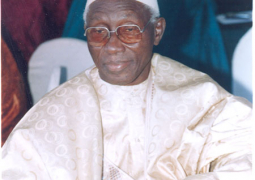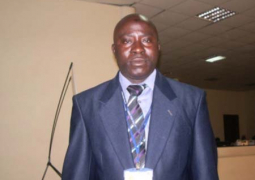West Africa Network for Peace Building (WANEP) The Gambia on 9 December 2013 launched the National Early Warning System (NEWS) at the National Nutrition Agency (NANA).
Ellen Faye Touray, ECOWAS representative at the launching, in her keynote statement, said: “In a policy document entitled, ‘An agenda for peace’ (1992). The former UN Secretary-General, Boutros Boutros-Ghali, defined conflict prevention as the action to prevent disputes from arising between parties, to prevent existing disputes from escalating into conflicts and to limit the spread of the latter when they occur.
“This makes the main aims of conflict prevention as being ‘to seek and identify at the earlier possible stage situations that could produce conflict and to try through diplomacy to remove the sources of danger before violence results’.”
“In a similar vein, his successor Kofi Annan, in his Report to Security Council on Prevention of Armed Conflict, stated that ‘there is no longer goal, no deeper commitment and no greater ambition for the UN than preventing armed conflict’.”
She continued: “The prevention of conflict begins and ends with the protection of human life and the promotion of human development. Ensuring human security is, in the broadest sense, the United Nations’ cardinal mission. Genuine and lasting prevention is the means to achieve that mission.”
Conflict Early Warning can be defined as a systematic reading of specific indicators or signals, trends or patterns; and translating those patterns into some kind of prediction about the likelihood of the emergence or escalation of violent conflict, the ECOWAS representative stated.
It requires an extensive understanding of and sustained interaction with local histories and realities, she said, adding that early warning also requires a capacity to track emerging disputes and assess, on the basis of underlying factors of their potential for conflict.
Effective early warning promotes improved environmental management and sustainable livelihoods that are harmonious with the environment through helping to increase the security of vulnerable populations and endangered environments, she went on.
“Early warning plays such a strong role in improving human security because it is one of the most effective measures for reducing negative impacts of threats and risks triggered by natural disastrous event,” Madam Faye Touray explained.
“Early warning and other mitigation interventions are a cost-effective way of disaster risk reduction: studies have shown that a $1 expenditure on mitigation saves about $4-10 in recovery costs.
“Therefore, WANEP believes that the best and most sustainable peace building approach is that which is locally generated and externally supported.”
WANEP-Gambia Board Chairperson Maria Dacosta, in her Goodwill Message, said the West African sub-region is prone to all sorts of conflicts that steps from social and or political tensions within our societies that go unnoticed or not given the due attention at the very early stages.
“Such tensions do escalate into full-blown conflicts that disrupt the peace, security and stability of the citizens and result in the loss of lives and properties, further undermining human and economic development and growth in the sub-region.
“The documentation and availability of timely and quality early warning data right from the community through WANEP’s National Early Warning System (NEWS) in all its National Networks, strives to respond to critical demands for pertinent information relating to human security and violent conflict, especially at community level, as vital information that goes uncollected and unreported.”
This initiative will take the contribution of WANEP as the official implementing partner of ECOWARN into the level of improving and institutionalizing the ECOWAS Regional early warning system, which serves as a reference point and working model for CSOs and intergovernmental institution partnership in the prevention and mitigation of violent conflicts across the globe and sub-region in particular, she added.
Madam Dacosta took the opportunity on behalf of the Board and management of WANEP Gambia to thank the Danish and Swedish Governments, through whose support, the services of professionals have been engaged in the National Offices The Gambia inclusive, to ensure the coordination of community data collection and reporting to its NEWS across the sub-region.
This will further feed into the ECOWAN system enabling WANEP to continue to play its role as the CSO partner to operationalisation and sustenance of ECOWAN, she added.
Sait Matty Jaw, NEWS manager, WANEP-Gambia, gave the presentation of the online NEWS while Mfrekeobong Ukpanah, programme assistant, Peace Monitoring Centre, made presentation on the relationship between ECOWARN and NEWS.
Francis Mendy, acting-National Network Coordinator (WANEP-Gambia), Zonal Coordinator (Zone 1), chaired the launching ceremony.




